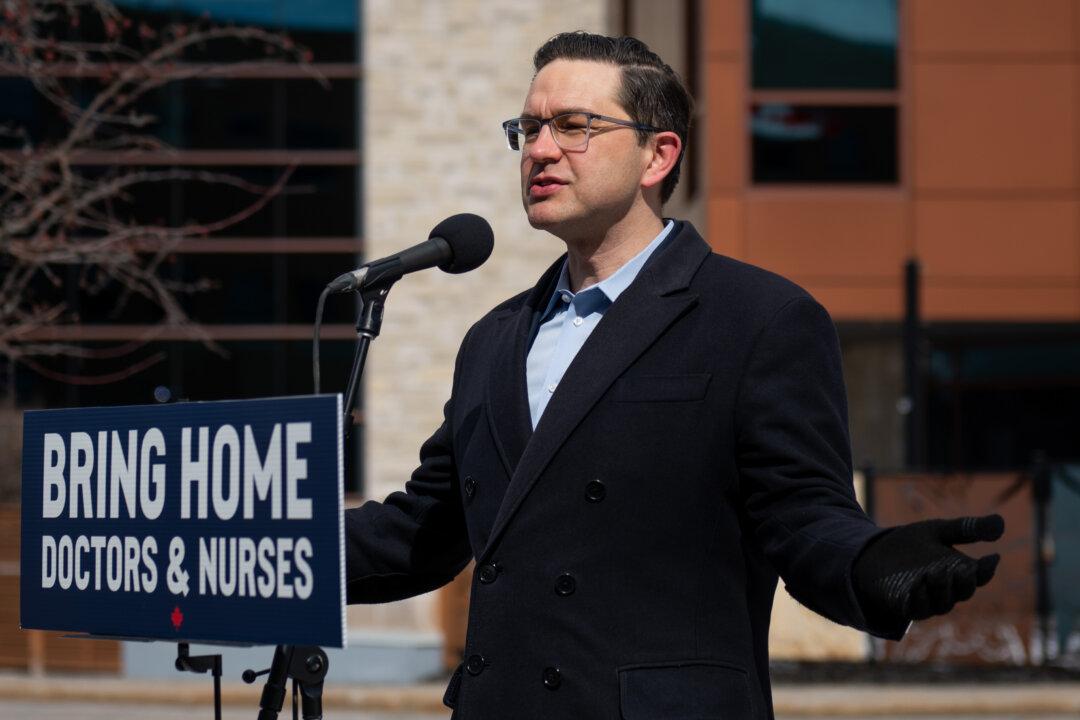Conservative Leader Pierre Poilievre has proposed a standardized “blue seal” testing program to quickly process licence approvals for qualified nurses and doctors with foreign credentials within 60 days.
“It boils my blood to sit in the waiting room with my daughter as she suffers with a migraine headache for six or seven hours with other screaming children, when we have 1000s of doctors that could be helping reduce those wait times for all of us, but are banned from doing so,” Poilievre said at a news conference outside the Children’s Hospital of Eastern Ontario on March 19.





